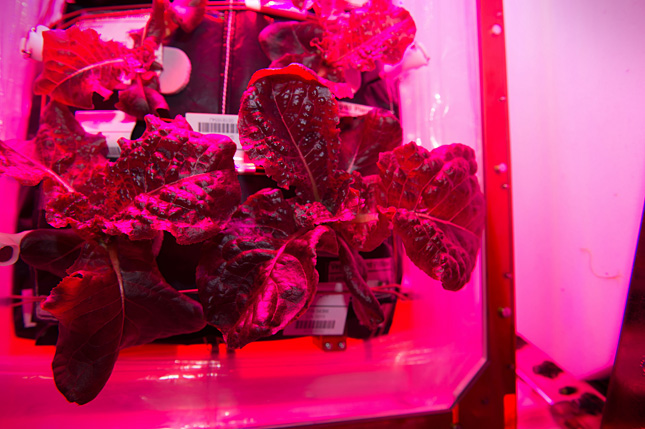-
Rachel Cernansky, Ensia
How “Open Source” Seed Producers From the U.S. to India Are Changing Global Food Production
December 29, 2016 By Wilson Center Staff
Frank Morton has been breeding lettuce since the 1980s. His company offers 114 varieties, among them Outredgeous, which last year became the first plant that NASA astronauts grew and ate in space. For nearly 20 years, Morton’s work was limited only by his imagination and by how many different kinds of lettuce he could get his hands on. But in the early 2000s, he started noticing more and more lettuces were patented, meaning he would not be able to use them for breeding. The patents weren’t just for different types of lettuce, but specific traits such as resistance to a disease, a particular shade of red or green, or curliness of the leaf. Such patents have increased in the years since, and are encroaching on a growing range of crops, from corn to carrots – a trend that has plant breeders, environmentalists, and food security experts concerned about the future of the food production.
A determined fellow dedicated to the millennia-old tradition of plant breeding, Morton still breeds lettuce – it just takes longer, because more restrictions make it harder for him to do his work.
“It’s just a rock in the river and I’m floating around it. That’s basically what we have to do, but it breaks the breeding tradition,” he says. “I think these lettuce patents are overreaching and if they [were to hold up in court], nobody can breed a new lettuce anymore because all the traits have been claimed.” He continues to work with what is available, breeding for traits he desires while being extra careful to avoid any material restricted by intellectual property rights. He has also joined a movement that is growing in the U.S. and around the world: “open source” breeding.
If the term sounds like it belongs in the tech world more than in plant breeding, that’s no accident. The Open Source Seed Initiative, inspired by “the free and open source software movement that has provided alternatives to proprietary software,” was created to ensure that some plant varieties and genes will remain free from intellectual property rights and available for plant breeders in perpetuity. As part of the initiative, commonly known as OSSI, U.S. breeders can take a pledge that commits the seeds they produce to remain available for others to use for breeding in the future.
Sources: Ensia, National Aeronautics and Space Administration, Open Source Seed Initiative.
Photo Credit: Outredgeous red romaine lettuce growing on the International Space Station, August 2015, courtesy of NASA.
 A Publication of the Stimson Center.
A Publication of the Stimson Center.



